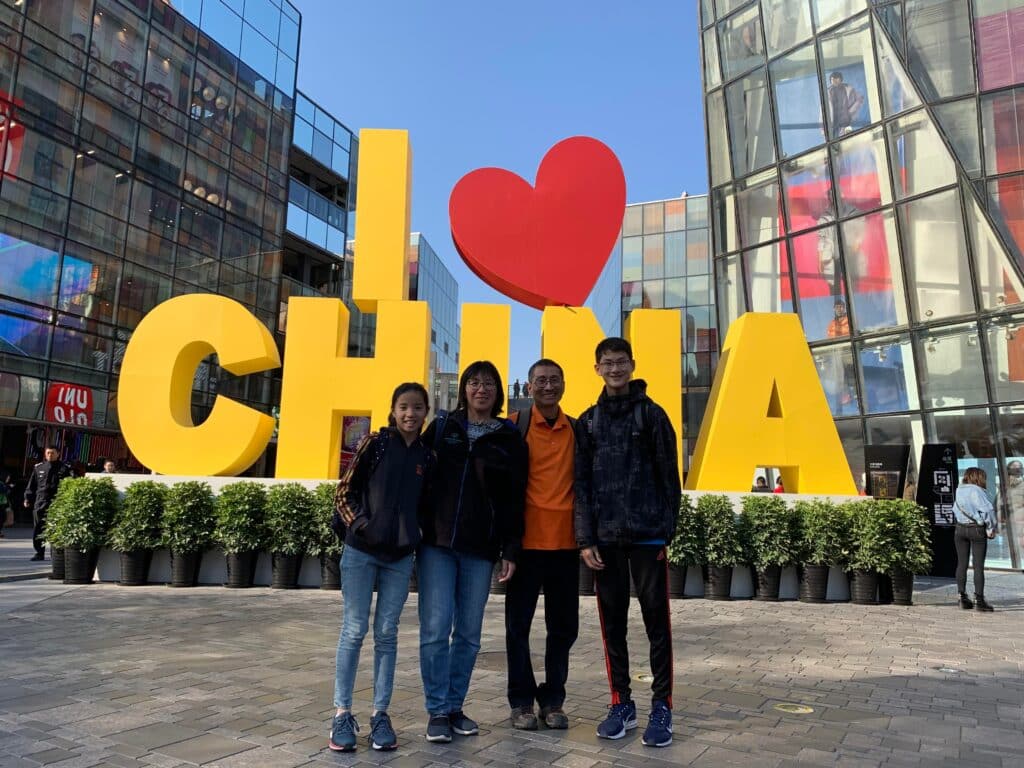Tell us about your family!
We have one biological daughter (who recently got married) and two children adopted from China. Our first adoption was in October 2007 when we adopted a baby girl and our second adoption was in July 2010 when we adopted a little four-and-a-half-year-old boy.
What was your experience like with international adoption?
We went through a similar process that is involved with domestic and private adoptions. Homestudies, training, lots and lots of paperwork, and tons of waiting! Fortunately, when we started the process for our first adoption, we connected with a couple of other families in our northern BC city who had recently adopted from China. We met with them and heard about their experiences which gave us confidence as we moved forward. At that time, adoptions from China were predictable and streamlined.
Can you tell us about one high point and one challenging point in your adoption experience?
One challenging point in our adoption experience dealt with citizenship paperwork which we needed to bring to China. It was difficult to find the status of the necessary paperwork and after many phone calls, letter writing, and a visit with our local MP who suggested we cancel our planned trip to China, we finally received our paperwork in time to depart on our scheduled date.
Our two high points were when we met our children for the first time!
Our favourite connection?
Joel & Gigi Yuen
FOOD, FOOD, FOOD!
What are some ways you have tried to maintain a cultural connection with your children’s birth culture?
Our favourite connection: FOOD, FOOD, FOOD!
Also, as homeschoolers, we have studied Chinese history, kept up with local news, took Chinese language lessons as a family, learned about the history of Chinese in BC, and, of course, since we’re Chinese just hanging out with grandparents when we’re together and connecting virtually regularly with them helps us all to appreciate our culture.
Last autumn we decided to take a trip to China to visit our children’s birth country and to visit their Social Welfare Institutes (this is what orphanages are called in China). We wanted them to celebrate their birth country and to learn more about China and her people. It was an incredible experience for us all!
What’s your best bit of advice for families considering adopting?
Our best advice is to talk to others who have adopted and be prepared to learn and change along your journey.
How has AFABC made a difference in your life?
We appreciate all the advice and personal stories of adoptive families in Focus on Adoption! Also, through Brandi Kennedy, Family Support Worker, we’ve been able to meet with other adoptive families and participate in fun events.
We asked G and T, the two younger children of the Yuen family, what being adopted means to them:
From G, age 13: “Adoption means being ‘chosen.’ You are wanted. Among all the other children in the orphanage you grew up with, you were the one chosen and wanted to be a part of that loving, inviting, hopeful family. When we went to China last year and visited two Social Welfare Institutes it was really sad and emotional for me to know that some of these children will never experience having a loving family as I have experienced. Sometimes we take for granted being adopted and chosen—when we visited two orphanages and saw some of the kids who were just like us, I realized how privileged I was to be chosen and to be adopted. It was a real eye-opener for me. So, if you were adopted, I just want you to realize how special and important you are to your family!”
From T, age 14: “Being adopted means to me to have kind and loving parents that will guide you, help you out when you need it, and just be there for you.”
Homeschooling tips!
We started homeschooling in 2000 when our birth daughter was in Kindergarten. Our extended family lives a 14-hour drive away, and we wanted the flexibility to visit whenever we wanted.
We continued to homeschool our two adopted children because we thought it was a great way to attach and connect with them. Learning with them and having them near us throughout the day was a great opportunity.
Here are the Yuen Top Ten Tips for Homeschooling
- Try not to bring the classroom into your home! It’s not necessary to replicate school.
- Discover your children’s learning styles and teach in a way that best works for them.
- Use a curriculum or don’t! We use a limited curriculum, usually for Math, and rely on good books and videos, or free and inexpensive community resources.
- Find and build relationships with other homeschool families and before you know it there can be learning co-ops, get-togethers, or organized sport and holiday activities.
- Be flexible with your school days and include plenty of opportunities to move, play, and get fresh air.
- Don’t compare yourself with what you find on YouTube videos or Pinterest! Be yourself!
- Be patient and give yourself grace as you embark on your home learning journey.
- Ask for help if you need it (from professionals, friends, or family).
- Read and research about different philosophies of homeschooling but feel free to incorporate your own family’s needs.
- Remember that children are always learning even if what they’re doing doesn’t look “academic” (character, emotional, social, spiritual growth, life skills, to name a few).





